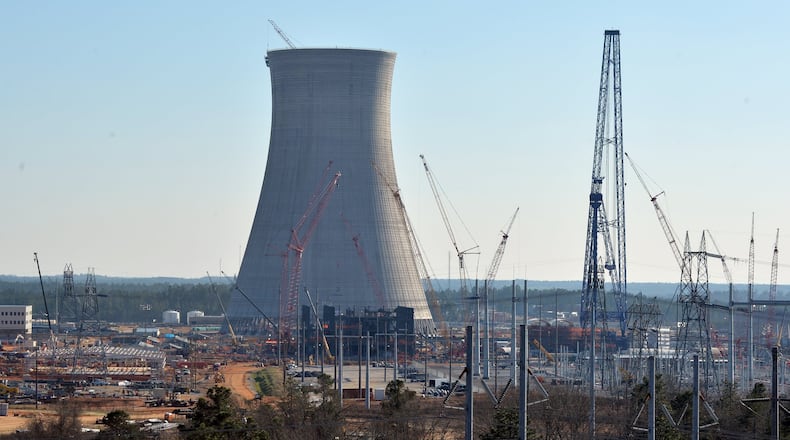Recent corporate tax reforms passed by the Senate and the House could prompt a decision on the fate of embattled nuclear power plant Vogtle by the end of this year.
The decision on Vogtle was initially set for February but in letter exchanges this week between the CEO of Georgia Power Paul Bowers and the chairman of the Georgia Public Service Commission, Stan Wise, the outcome may come faster than earlier anticipated.
Bowers said in a letter to Wise that if the new tax rate takes effect in 2018, it could result in lower revenues for the company. As a result, he called on commissioners decide on the fate of the project before December 31, to enable the company take advantage of the current tax rate.
If that happens, Bowers says, the company could utilize the higher federal tax rate under an abandonment deduction which would result in the company yielding a tax benefit of $150 million.
Kurt Ebersbach a senior Attorney with the Southern Environmental Law Center which does not support Vogtle is perplexed by the sudden concern by Georgia power to get the tax benefit arguing the company spends that much in three months on Vogtle.
Ebersbach says what the rushed decision could do was leave “customers stuck with billions in more costs.” He is not convinced that Georgia Power or the commission are seriously considering abandonment.
On its part, Georgia Power argues waiting to make the decision next year means the company could lose the benefits of the current tax rate offers.
“These benefits would offset project costs and be passed along to customers through the traditional ratemaking process,” Bowers told Wise.
But the benefits Georgia Power is trying to save pale in comparison to the billions the project has cost customers over the years, leading to the conclusion this week by analysts appointed to evaluate Vogtle’s progress that the project is uneconomic.
“If it’s about saving money to customers, the decision should have been made long ago,” Ebersbach argues.
Bowers was responding to Wise’s question, in which the PSC chair sought to know how plant Vogtle would fare in the wake of the tax reforms passed by Congress.
This development comes as the commission prepares to hold hearings next week to review recent testimony by analysts appointed by the PSC to review Vogtle’s progress.
The testimony indicated completing the project was "no longer economic on a to-go basis" and that Georgia Power had managed the project and its lead contractor-Westinghouse Electric Company - poorly.
The analysts called for cancellation of the project if the commission declined their recommendations which called on the commission to disallow costs deemed unreasonable and allocate risks and costs between Georgia Company and its customers.
The analysts also highlighted design challenges, quality assurance and schedule issues that have beset the project since inception in 2009, resulting in delays and subsequent cost overruns that have been synonymous with the project.
In his response to the letter by Georgia Power CEO Bowers, PSC chairman Wise called on staff of the commission and Georgia Power to “consider revisions to the remaining schedule” to pave way for a decision by the end of the year.
“It’s difficult for me to believe that a responsible decision can be made within such a short frame of time,” said Ebersbach.
The commission resumes hearings Monday.
About the Author
Keep Reading
The Latest
Featured


